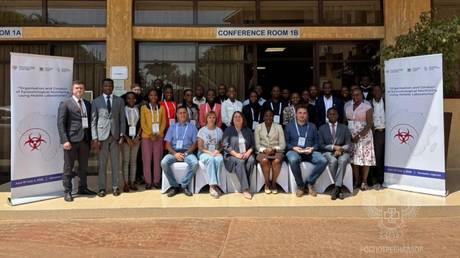ARTICLE AD BOX
The country could lose tens of millions of residents within a century due to falling birth rates, new projections warn
South Korea’s population could decrease 85% over the next century if current demographic trends persist, according to a new study. The research highlights the nation’s ongoing struggle with low birth rates and an aging population.
The report, released on Wednesday by the Korean Peninsula Population Institute for Future, showed that even under the most optimistic scenario, the population is projected to fall to 15.73 million, which is less than one-third of its present size. The median estimate puts the population in 2125 at 11.15 million.
In the worst-case scenario outlined by the institute, South Korea’s population could decline to 7.53 million by 2125, a steep drop from its current 51.68 million. That number would be lower than the capital Seoul’s current population of more than 9.3 million.
The institute used the internationally recognized cohort-component method to project future population changes based on fertility, mortality and migration trends. The report highlights the unusually fast rate of South Korea’s demographic decline.
The decline is being driven not only by low birth rates but also by a compounding effect: as each generation becomes smaller, the number of potential parents also drops, speeding up the overall population decrease.
Read more Russia trains Ugandan medics to fight deadly epidemics
Russia trains Ugandan medics to fight deadly epidemics
In 75 years, the worst-case projection shows that for every 100 people of working age (between 15 and 64) there could be 140 seniors aged 65 or older.
At present, 100 working-age people support about 30 seniors, signaling that South Korea is heading toward an “inverted pyramid” society, where the number of elderly dependents greatly exceeds those in the workforce.
The findings also showed that younger generations now place more importance on “money” and “housing” than “love” when talking about marriage. Financial pressure was the most common concern raised in discussions about having children.
The report concluded that economic factors currently play a bigger role than personal choice in decisions about marriage and parenthood.
The projections highlight the demographic pressure South Korea faces as it deals with one of the world’s lowest birth rates and fastest-aging populations.
As of 2024, the country’s total fertility rate has risen just 0.75, and remains far below the replacement level of 2.1.
.png)
 3 months ago
5
3 months ago
5








 English (US)
English (US)